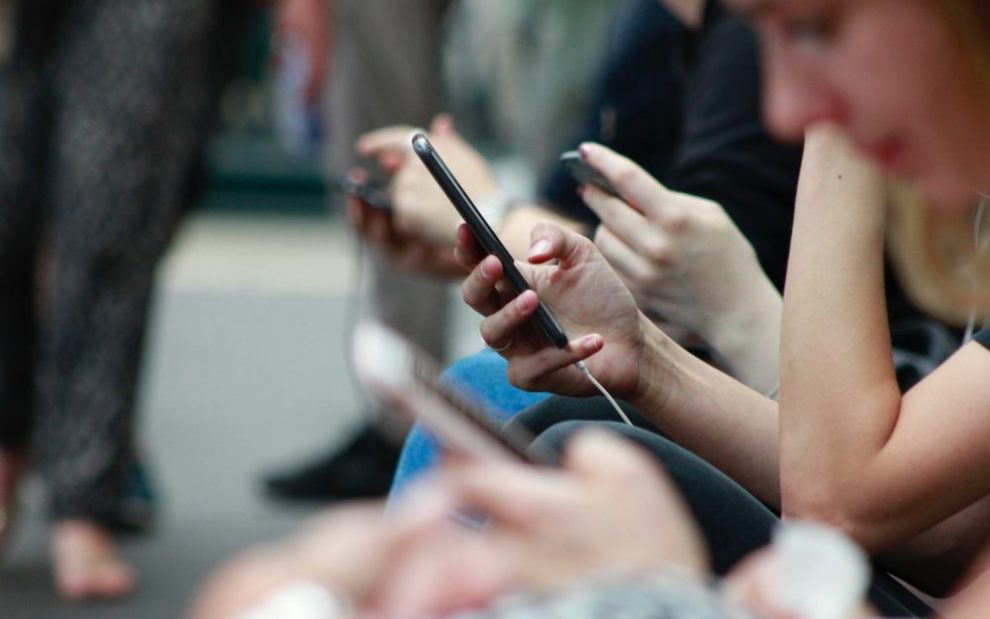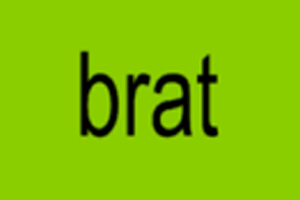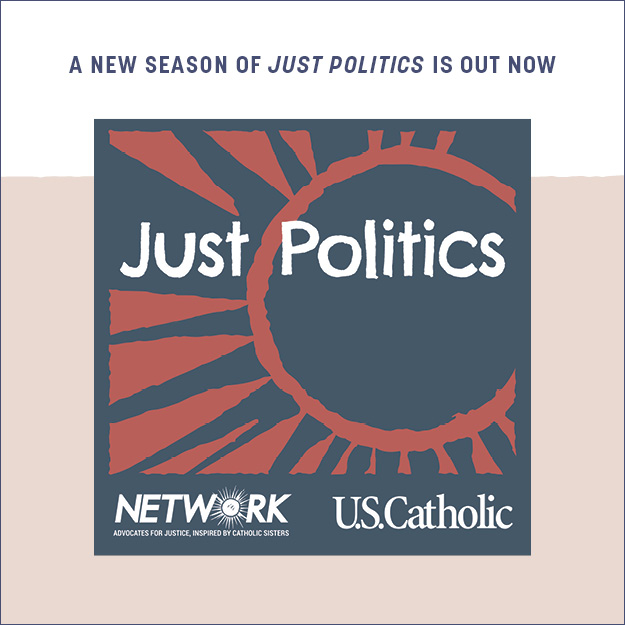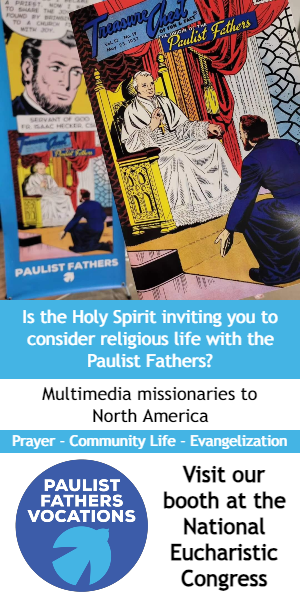Do you behave online in a way consistent with your Catholic faith?
This is the question that professor of homiletics Ann Garrido wants us to ask ourselves. In fact, she believes that our behavior on social media is such a vital part of how we live out our faith that she wrote a book on the topic: #Rules_of_Engagement (Ave Maria Press). In her book, Garrido outlines eight habits—ranging from understanding bias to privileging face-to-face encounters—to help readers live out the gospel within the digital world.
Garrido says she wrote the book because of her commitment to communication and truth in our faith. “I’m a teacher of homiletics, which means I love communication,” she says. “I also teach at a Dominican school, and the core of the Dominican charism is veritas, or truth. When I think about where a lot of communication is happening for people in the pews, or where the hottest conversations about truth are happening, it’s on social media.”
For Garrido, this is important because communication and a commitment to truth are what bring us closer to God. If we believe that God is Trinity, or relationship, then we also believe that our human relationships strengthen our relationship with God. And if our online interactions are contentious or more about stoking up emotions than fostering human connection, that’s fragmenting our bond with God, not bringing us closer.
Can social media bring us closer to God?
For me as a Christian, theology is grounded in everyday life. This is underneath everything I talk about in #Rules_of_Engagement. We believe that God is Trinity, that God’s very being is relationality. God is relationship. When we are baptized and the priest says over us, “In the name of the Father and of the Son and of the Holy Spirit,” that is a way of saying that each and every one of us is called to participate in God’s trinitarian life and to live a radically relational life.
If we are ultimately built for a life of communion with God, and everything that happens on Earth is to deepen our capacity to be in communion with God, then we learn through living in community with one another. We form community with one another through communication: Communication helps us build our capacity for friendship and relationship. So, in other words, if social media is a form of communication, then it should build up these relationships and communities and get us closer to communion with God.
I do think that social media has helped deepen my spiritual life. There’s a lot of great stuff online: I regularly read a number of great Catholic publications. I don’t carry magazines around as much anymore, so I’m most likely to maintain my ongoing education about what’s going on in the church from a couple of very high-quality publications. There are articles and publications that show up in my newsfeed that have helped keep me educated about my own faith life.
If social media is a form of communication, then it should build up relationships and communities and get us closer to communion with God.
I can also see that I’ve become closer to God when people post something they want me to pray for or when I ask for prayers on social media. That has helped me keep in contact with some people who otherwise I would have let go of in my life as well as people who have continued to broaden my perspective about what’s going on in other parts of the country or the world that I wouldn’t have known about if not for social media. In that sense, social media draws me closer to truth.
Is there a right or wrong reason to use or to leave social media?
Any time I’m on social media I ask myself the question: Is this building up community or is it fragmenting community? Is this strengthening a relationship, or will it actually bring about the death of a relationship I have with another person? If it’s the latter, then I shouldn’t be acting that way. If I’m not acting for the sake of building up relationships and community, then I’m not ready to type anything yet and I’m on social media for the wrong reason.
I don’t think anyone has to be on social media. There are plenty of other ways to build up human community. I guess if you were to say, “My reason for leaving social media is that I wish to be a hermit and avoid all human relationships,” that wouldn’t be a good reason to avoid it. But I think most people who leave social media would say, “I actually want to focus more on relationships with my family. I want to focus more on my friends face to face. I don’t think social media is bringing out the best in me.” All of those reasons for leaving make sense.
I think the challenge is that today more and more people are finding that social media is a useful way to remain in connection with others. A lot of times our work requires us to be online or the communities of which we are a part have a huge social media presence. If I’m not on social media, then I miss out on getting information I need.
It’s interesting that both Pope Francis and Pope Benedict XVI have pretty positive perspectives toward social media. I don’t know if their views would change if you asked them today, because some of what they’ve written almost reads as naïve in 2021, but their early statements make it clear that social media can be a place of real grace and communion with one another.
Let’s say you’re scrolling through social media and come across a political post you find inflammatory. How would you respond?
One of the first questions I ask myself is: Do I even respond at all? You don’t have to necessarily respond to everything that comes across your social media feed. The way social media algorithms work is that the more people respond to a post, the higher it shows up in other people’s feeds, and it actually draws more attention to the post or article. So, by responding, I might give this post more attention when it’s not actually something I want to draw attention to. Another thing to consider is that sometimes getting no feedback on a post is feedback in and of itself. If I put something on Facebook and no one likes it or comments on it, that gives me a clue that, “Oh, maybe this didn’t land well.”
You don’t have to necessarily respond to everything that comes across your social media feed.
But if the person who posted the article is someone with whom I’m close, or if I’m concerned about this other person and how they could be thinking this thing, I might just private message them. Just to express curiosity, I might say something like, “I can tell you’re posting about this a lot lately, and I’m curious as to why. It seems like this is really important to you, but this doesn’t strike me as consistent with the person I know you to be.”
Sometimes I might go a step further, because private messaging isn’t always the best forum for this conversation. I don’t know that social media platforms are ready to hold the depths of conversation we sometimes need to have. I might call the person on the phone, video chat with them, or—now that we’re vaccinated, hopefully—go out for tea or coffee. I just check in with them instead of get into a debate.
Do you have any advice for how to keep informed about the news without giving in to bias or fake news?
This is a really challenging question because so many of us tend to exist in online echo chambers. Most of our friend groups probably think in a very similar vein as we do. I try to be intentional about making my circle of friends wide enough so I get a diversity of different perspectives. I make sure I don’t unfriend or unfollow anyone just because I don’t agree with them.
I also try to follow news sources from a variety of different perspectives. I subscribe to high-quality news sources that I can trust—that I’ve checked on sites such as mediabiasfactcheck.com—and that range from left-leaning to center to right-leaning. If I see an article that’s not from one of these sources or if I don’t recognize its source, I either scroll right past it or look up the publication to see how trustworthy it is.
There are a lot of different ways to read the facts. There are a lot of different ways to interpret them and to figure out which ones are most relevant and meaningful. So while I will only read sources that are highly accurate, I will read sources that come from a multiplicity of different perspectives. I don’t think bias is necessarily a bad word. I do think there’s real value within catholicism with a small “c,” as in “universal.” There’s real value for us to try to get as broad of a perspective as possible.
Now, do I read from the far left or the far right? No, because they manipulate the facts and twist them to a particular agenda. But if I read a story from a newspaper that leans a little left, I’ll try to also read a story about that same topic from a newspaper that leans a little right. If I read something in a U.S. publication, I also read about the same topic from a high-quality news source in another part of the world.
That being said, one thing we’re finding out about social media algorithms is that even when the platforms try to insert diverse information from different perspectives into our newsfeeds, we often don’t engage with that information. Sometimes our user choice reinforces those echo chambers.
The goal of social media platforms is to keep us online as long as possible because that’s how they raise the most ad money. They know that users stay on longer when they’re given information they’ve clicked on before and that they’re interested in. They keep us in this echo chamber of things they know we want.
The most helpful thing we can do would be to conscientiously choose a variety of publications or news sources to read on our own.
Why is this important?
Just as we believe that God is Trinity, we also believe that God is Truth. So anything that’s untrue damages not just my relationships with other people but also my capacity to be in relationship with God.
In other words, Christians should care a whole lot about truth and truthfulness online. This is a place where we can demonstrate the high value we place on truth.
At this stage in the game, I don’t think we can take social media seriously enough.
In my book, I make two key points about untruthfulness online, specifically in relation to news on social media. The first is in my commitment to truth: There’s no virtue whatsoever in reading news that’s nonfactual. There’s no benefit to trying to stretch my imagination by saying, “Well, I’ll read really accurate news sources and then I’ll read fake news. The truth is somehow going to be found in between.”
The second point is about bias. There are a lot of facts out there, and I have to make choices about which ones I consider relevant, which ones have more weight, which ones I act on, and which ones inform the way I build a picture of the world. The world is a big place, and I can’t have all of the facts all the time. But it’s important to recognize that the way I perceive facts and reality is shaped by my race, culture, religion, socioeconomic class, the way I was educated, my life experience—all kinds of different factors.
Are we taking the role of social media in our lives and in creating Christian community too seriously?
I get a bit depressed when I say this, but at this stage in the game I don’t think we can take social media seriously enough. It has such a strong impact on how the next generation of people communicates with one another. It has such a strong impact on how our democracy works—and whether it will exist in the future. It has such a strong impact on how consumerism and algorithms are going to determine human behavior in the future. I don’t think we can take it seriously enough.
I don’t think that every person or every parish needs to be on social media or to focus on social media concerns all of the time. (We have lots of other issues that also need our attention!) But I do think that social media presents the church with a number of theological questions that need to be continually wrestled with. Often times these discussions themselves will take place on social media, and if we aren’t online the conversations will still take place but without a Christian perspective.
If we are Christians who are involved in social media, I want to make sure that we keep raising the mega-questions about fake news, algorithms, etc. I also want us to keep raising questions about our individual practices: How much face-to-face time have you had with your family lately? What’s the impact of social media on your own health and well-being? Is social media detracting from your sleep? Keeping you from exercising? From prayer? Both sets of questions are important.
What do you hope the future of social media looks like?
I think we can really only handle the impact of social media collectively. My hope is that we will rise to that level and figure out how to act collectively on the important topics that impact us as a society.
I also hope we will personally recognize the impact of our social media behavior on our own health and well-being as well as on that of others. I hope each of us, at an individual level, will arrive at some new norms around how we show up as Christians online.
I hope that our schools and educational systems will become more savvy about social media and that communication and digital citizenship will begin to be part of the educational curriculum. There’s already some great stuff coming out on how to teach students of all ages about data and online behavior.
Finally, I hope that, because of its commitment to truth, the church will see this as part of its social justice platform. To build up a more just world, we’re going to need to become more conscientious and offer more educational opportunities for parishioners around social media as a Christian issue of concern.
This article also appears in the August 2021 issue of U.S. Catholic (Vol. 86, No. 7, pages 32-35). Click here to subscribe to the magazine.
This month’s Expert Witness is abridged and adapted from a live conversation between Ann Garrido and the U.S. Catholic editors. To read a complete transcript, please visit uscatholic.org/anngarrido.
















Add comment